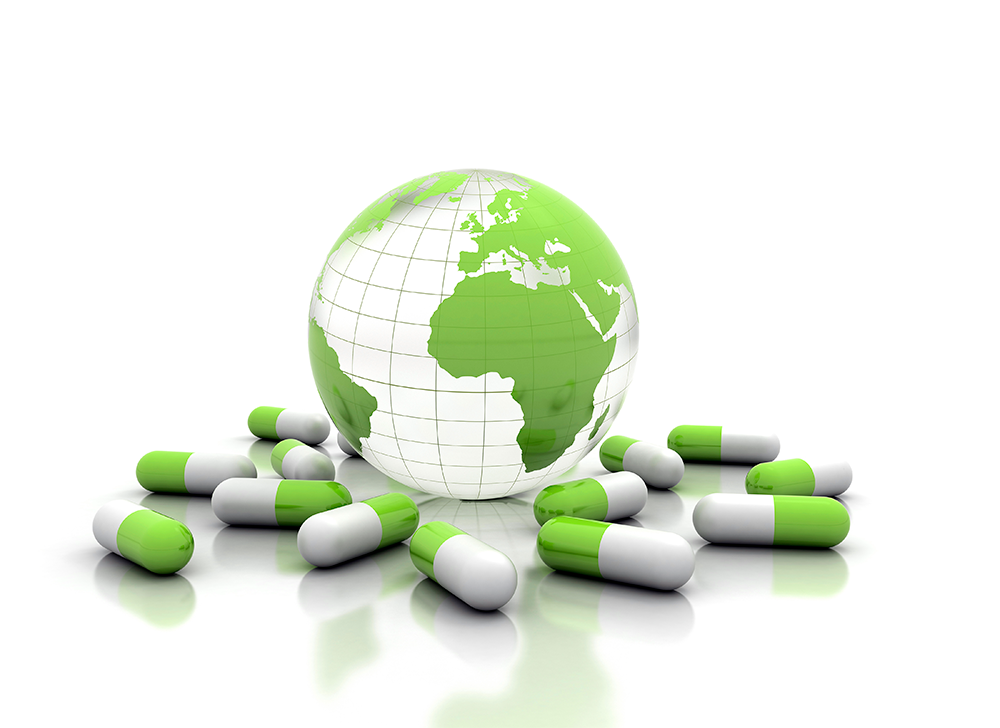
Pharmaceutical companies are unique in their public and global health role because, unlike other multinational corporations, their business decisions directly impact human health, thus making their corporate social responsibility (CSR) efforts particularly important. These firms have been criticized for setting prohibitively high prices and for their sluggishness in responding to demands to provide access to life saving drugs for poor populations (Hayley & Bennett). Within the last two decades, however, the industry has rallied in response to previous criticism and has invoked CSR efforts that have had significant positive impacts in low- and middle-income countries (LMICs), which bear the majority of global disease burden (Hayley & Bennett).
According to the 2016 Access to Medicine Index (AMI), seven of the largest multinational pharmaceutical companies consistently ranked within the top 10 in terms of most active CSR projects related to LMIC health. GlaxoSmithKline (GSK), Johnson and Johnson (Janssen), Merck & Co., Novartis, Pfizer, Roche and Sanofi effectively employed CSR that integrates social concerns into their corporate LMIC strategy as opposed to simply providing philanthropic donations unconnected to commercial strategy (Hayley & Bennett).
Efforts highlighted by AMI illustrate that 20 of the top pharmaceutical companies are developing 420 products for the 51 most burdensome diseases and conditions in low- and middle-income countries. This includes more than 100 products that have entered the pipeline since the previous AMI and 151 with low commercial potential but which are urgently needed, mainly by the poor. Additionally, AMI examines 22 diseases and conditions that Policy Cures has identified as needing new products, which have limited commercial incentive.
Activity in this area is concentrated among the top companies mentioned above and account for nearly three-quarters of the 151 high-priority, low-incentive products in development with a focus on malaria, HIV/AIDS, tuberculosis and viral hepatitis. GSK is developing the most with 32 projects in the pipeline, followed by AbbVie with 19 and Johnson & Johnson with 17. Four of these companies devote more than 50 percent of their relevant pipelines to high-priority, low-incentive product gaps. Read more about AMI here.
Work by Top Pharmaceuticals to Improve LMIC Health:
- GSK has been working for the past 30 years with partners like United Nations Children’s Fund (UNICEF), World Health Organization (WHO), Pan American Health Organization (PAHO) and financing agencies, such as Global Alliance for Vaccines and Immunization (GAVI), to develop a vaccine to protect young children from Malaria. In 2015, the European Medicines Agency adopted a positive scientific opinion for the malaria candidate vaccine Mosquirix™, or RTS,S, in children aged six weeks to 17 months. In 2016, WHO confirmed that funding had been committed to enable the pilot implementation of RTS,S in three settings in Sub-Saharan Africa, due to begin early 2018. GSK developed RTS,S in partnership with PATH Malaria Vaccine Initiative and funding from the Bill and Melinda Gates Foundation. The vaccine candidate targets a malarial parasite, P. falciparum, which is most prevalent in Sub-Saharan Africa. Trials have shown that its use, along with bed nets and insecticides, can help protect the region’s most vulnerable children. Read more here.
- Johnson and Johnson launched its new Global Public Health Strategy in Africa April 2016, which is a “holistic” measure designed to go beyond research and medication development to address issues that prevent appropriate healthcare from reaching those in need. In partnership with global non-governmental organizations (NGOs) and local governments, Johnson and Johnson instituted programs that train local healthcare workers and have improved distribution processes to ensure those needing medication can receive it in a timely manner. Read more here.
- Novartis is playing a key role in China’s Xinjiang province, which covers one-sixth of the country and is home to 23 million inhabitants with the “Health Express” program. This program is conducted in partnership with WHO and the Chinese government, and provides medical treatment, healthcare education and provider training that reaches many Chinese citizens in need. Since its 2010 launch, the program has covered more than 90 percent of Xinjiang’s rural areas and provided health education to 1,800,000 students, 470,000 residents and 60,000 doctors. Student education has a positive “ripple effect” as students pass knowledge they acquire to their families and, thus, influence health behaviors in local communities (IFPMA). Read more here.
Overall, questions remain concerning private industry’s level of responsibility in public concerns and how significant their role should be in delivery of public programs. Today’s global society is faced with more significant issues than any public agency has the resources to address. For this reason, it is critical that private corporations continue to analyze their positions as global “citizens” and the impact public/private partnerships have on improved public health.
References:
- Droppert, Hayley, and Sara Bennett. “Corporate social responsibility in global health: an exploratory study of multinational pharmaceutical firms.” Globalization and Health1 (2015): 15. Web: https://globalizationandhealth.biomedcentral.com/articles/10.1186/s12992-015-0100-5.
